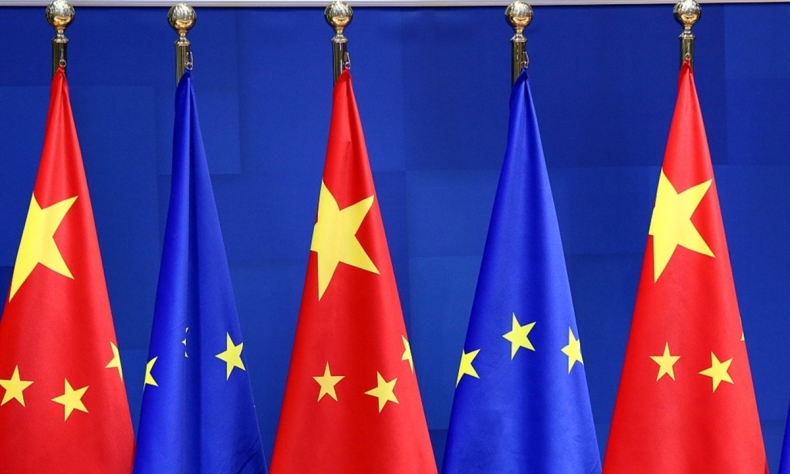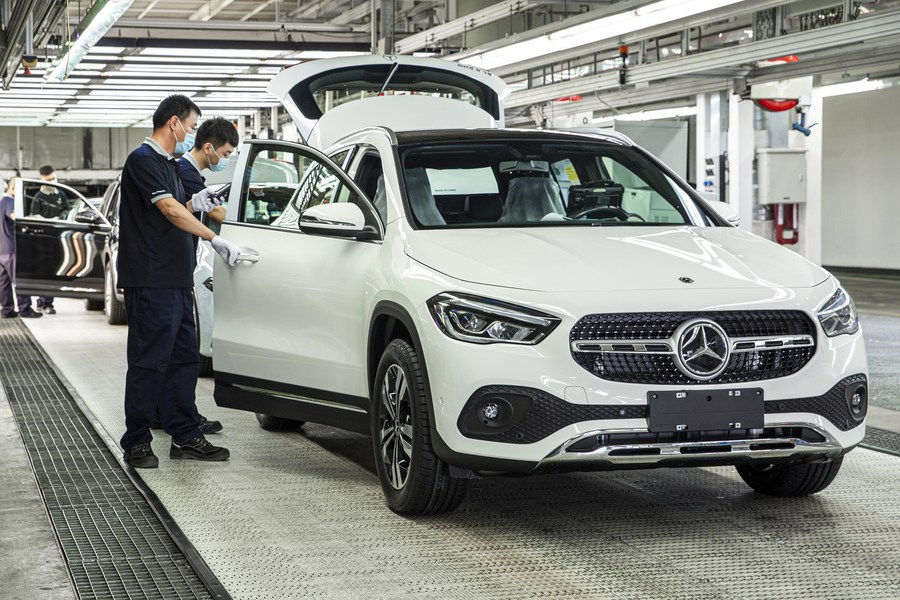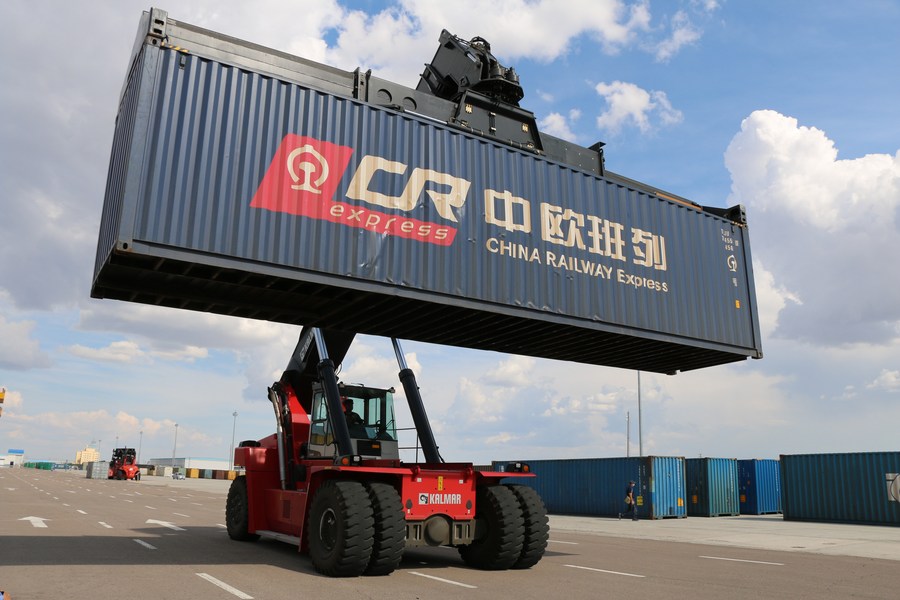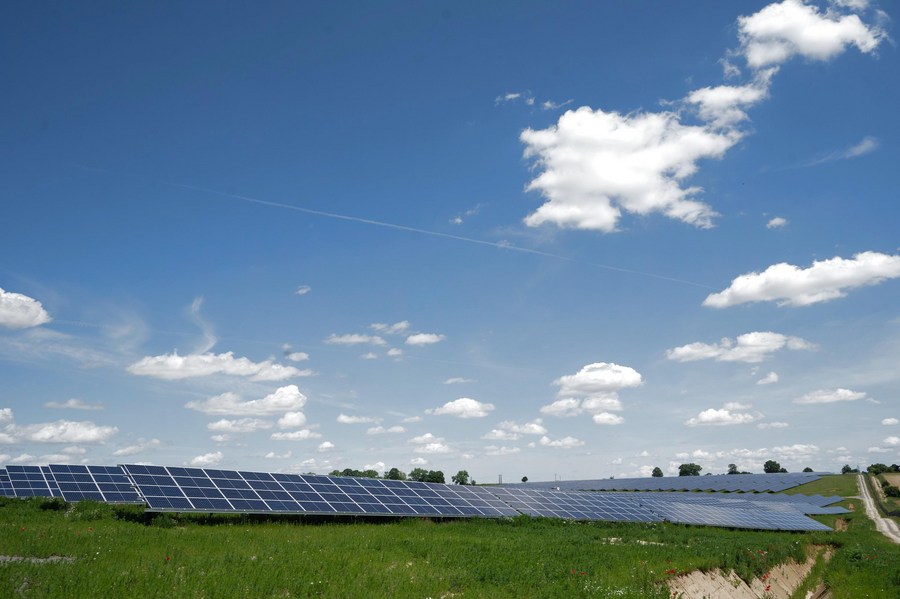The EU Seeks Strategic Autonomy

EU institutions and member states will hopefully gain an objective and accurate perception of China, rise above ideological antagonism, transcend systemic confrontation and firmly pursue peaceful coexistence and mutual benefit in their China policies.
Although assuming a clear dividing line runs through the Atlantic would be overly simplistic, the gap between the U.S. and Europe in terms of “China policy” is obvious.
While the U.S. has started to increase pressure on its EU allies to align more closely with its hardline on China, the Europeans have been pushing back.
The most recent U.S. National Security Strategy, released at the end of October, characterizes China as “the only competitor with both the intent to reshape the international order and, increasingly, the economic, diplomatic, military, and technological power to do it.” The American priority seems to be maintaining an enduring competitive edge over China.
By contrast, on November 22 while speaking at the European Parliament, the EU’s High Representative for Foreign Affairs and Security Policy Josep Borrell put the bloc’s emphasis on cooperation with China. “The U.S. is our most important ally but, in some cases, we will not be in the same position or [have] the same approach toward China.” Back in December 2020, the EU expressed its agreement with the U.S. on the strategic challenge China presented, but added: “We do not always agree on the best way to address this.”
Speaking at the Atlantic Council in February, French President Emmanuel Macron said a situation where all come together against China is “a scenario of the highest possible conflictuality” and is “counterproductive.” During German Chancellor Olaf Scholz’s visit to China in early November, the emphasis on economic cooperation far outweighed that on political competition. In late November, UK Prime Minister Rishi Sunak advocated an approach of “robust pragmatism” toward China, seeking to strike a balance between hardliners in his own party who seek a tougher approach and the interests of many businesses trading with China.
European reluctance about entering into confrontation with China, especially in the economic realm, is also evident in surveys, as documented in the Munich Security Report 2021. Ola Källenius, Chairman of the Board of Management of German car manufacturer Mercedes-Benz Group AG, said, it was “absolutely inconceivable” to back out of the Chinese market. This stance is likely to be shared by Volkswagen and BMW, as well as chemicals giant BASF who, together with Mercedes, accounted for more than one third of all European foreign direct investment in China between 2018 and 2021.

Underlying reasons
Economic concern is the main driver behind the moderate stance. Europe is an important partner and beneficiary of China’s rapid development. The COVID-19 pandemic illustrated more strongly than ever just how dependent EU countries have become on the delivery of critical products from China. Whereas this dependency was first felt in the specific case of face masks, it was soon also felt in other critical areas, including medical and pharmaceutical products, semiconductors and raw materials. The availability of many materials remains limited today, due to the combined disruptive effects of the pandemic and the Russia-Ukraine conflict on international economic value chains.
China is deeply integrated into the global economy and despite differences in history, culture, development level and ideology, the EU can hardly afford further shocks to volatile domestic and global economies as it tries to work out approaches to critical challenges such as climate change and global food and energy price hikes aggravated by the Russia-Ukraine conflict. It is simply unrealistic for the U.S. to demand Europe cut all commercial ties with China.
Another key reason is the EU’s strategic autonomy, referring to its capacity to act autonomously, without relying on other countries in strategically important policy areas. The first official EU document containing the expression of strategic autonomy appeared to be the European Council’s conclusion on the EU Common Security and Defense Policy of December 2013. Since 2021, the scope of EU strategic autonomy has been widened to virtually all policy areas as evidenced by European Council President Charles Michel’s visit to China in early December.
Michel congratulated President Xi Jinping on his reelection as general secretary of the Communist Party of China Central Committee. Noting that the international landscape and geopolitics are undergoing profound and complex changes, and the international community faces many challenges and crises, he emphasized that the EU pursues strategic autonomy and stays committed to building its capacity and pressing ahead with European integration. The EU stands ready for an in-depth discussion with China on important issues concerning different aspects of the bilateral relationship in the spirit of mutual respect and candor, in a bid to increase mutual understanding, promote dialogue and cooperation, and manage differences properly.

China’s stance
China supports the EU’s strategic autonomy and supports a united and prosperous Europe. While the Ukraine situation is showing a trend of expansion and prolongation, with negative spillover effects becoming more severe, China supports the EU stepping up mediation efforts and playing a leading role in building a balanced, effective and sustainable security architecture in Europe.
China has been approaching and developing its ties with the EU from a strategic, long-term perspective. As two major forces upholding world peace, two big markets promoting shared development, and two great civilizations promoting human progress, the China-EU relationship maintaining an onward and upward momentum is mutually beneficial and serves the interests of both sides as well as those of the international community. Chinese modernization and European integration are the choices that China and Europe have made considering their vision for the future. China looks forward to seeing the EU become an important partner in China’s pursuit of modernization and share the opportunities delivered by China’s huge market and efforts to advance institutional opening up and deepen international cooperation.
China holds that the two sides need to strengthen macroeconomic policy coordination, seek greater complementarity in markets, capital and technology, and work together to nurture new growth drivers in the digital economy, green development and environmental protection, new energies, and artificial intelligence. Joint efforts are also necessary to keep industrial and supply chains secure, stable and reliable, to reject practices of decoupling, severing supply chains and protectionism, and to oppose attempts to politicize and weaponize exchanges in the economy, trade, science and technology. China welcomes the EU’s participation in cooperation under the Belt and Road Initiative and the Global Development Initiative for greater synergy with the EU’s Global Gateway strategy.

The China-proposed Belt and Road Initiative aims to enhance connectivity along and beyond the ancient Silk Road routes. The Global Development Initiative, also put forward by China, aims to meet the long-term objectives and immediate needs of the world’s common development, fostering international consensus on how to promote development, cultivating new drivers for global growth, and facilitating the progress of all countries.
Exerted through existing mechanisms, new undertakings must push for more fruitful outcomes in dialogue and cooperation in a range of fields. While China will stay open to European businesses, it would like to call on the EU to stay free from disturbances and provide Chinese companies with a fair and transparent business environment.
China and the EU, both advocates of upholding the international system with the United Nations at its core, can work together to follow true multilateralism, safeguard global peace and development, steer the global response to climate change and efforts for biodiversity protection, energy and food security and public health, among others, and strengthen the synergy and coordination of each other’s quality public goods and cooperation platforms.
Most importantly, EU institutions and member states will hopefully gain an objective and accurate perception of China, rise above ideological antagonism, transcend systemic confrontation and firmly pursue peaceful coexistence and mutual benefit in their China policies.
 Facebook
Facebook
 Twitter
Twitter
 Linkedin
Linkedin
 Google +
Google +










